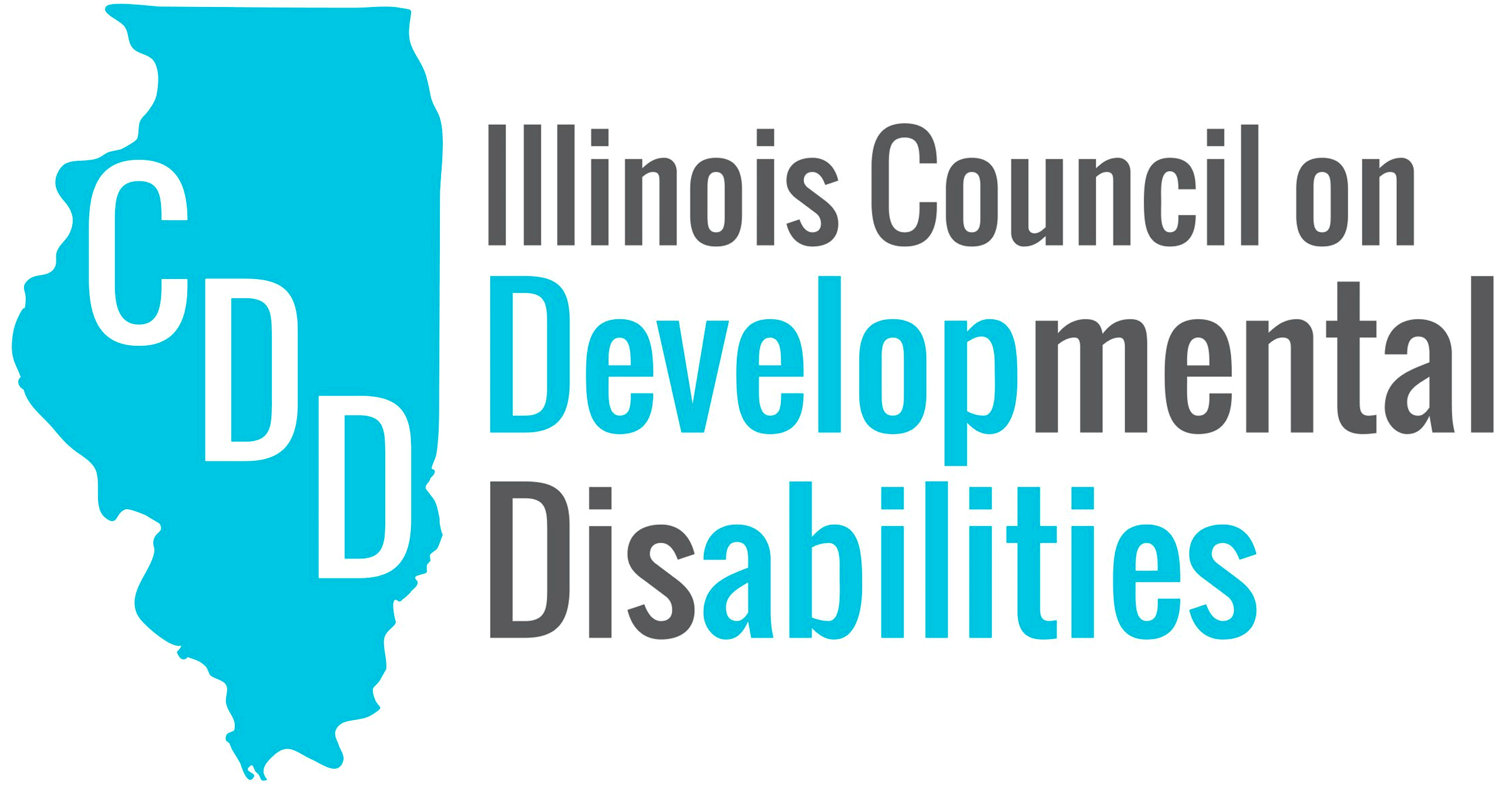About ICDD
Who We Are and What We Do
The Illinois Council on Developmental Disabilities (ICDD) was created under a federal mandate in 1974 as an amendment to the Developmental Disabilities Assistance and Bill of Rights Act (DD Act), and is administered by the federal Administration for Community Living. ICDD works to promote the independence, productivity, integration, and inclusion of those with disabilities into the community, ensuring that those individuals with developmental disabilities have the same opportunities as others in the community. Moreover, the purpose of ICDD is to ensure that people with developmental disabilities participate and be included in everyday life, and be able to choose the services and supports that best fit their needs. To accomplish this, ICDD makes investments in people and organizations that serve people with disabilities throughout the State of Illinois.
This project was supported, in part by grant numbers 19/2001ILSCDD-02, from the U.S. Administration for Community Living, Department of Health and Human Services, Washington, D.C. 20201. Grantees undertaking projects with government sponsorship are encouraged to express freely their findings and conclusions. Points of view or opinions do not, therefore, necessarily represent official ACL policy.
Frequently Asked Questions
- 1. Is the Illinois Council on Developmental Disabilities a state agency?
- 2. What is the role of the Council?
- 3. Does the Council provide funding for direct services?
- 4. Who makes up the Council?
- 5. What is a developmental disability?
- 6. Where is the Council located?
- 7. How can I get directions to the Council's offices?
Yes, the Council is an independent state agency, but we receive all of our funding from the federal government.
The Council advocates for the inclusion of people with developmental disabilities.
No, the Council does not provide any funding for services. The Council releases Calls for Investment (CFIs) for various grant opportunities related to systems change type projects.
The Council is comprised of no less than 60% individuals with developmental disabilities and/or their family members. In addition, there are also several state agency representatives that serve on the Council.
The Council follows the federal definition of developmental disability, which is:
A severe, chronic disability of an individual that:
- is attributable to a mental or physical impairment or combination of mental and physical impairments;
- is manifested before the person attains age twenty two;
- is likely to continue indefinitely;
- results in substantial functional limitations in three or more of the following areas of major life activity: self care, receptive and expressive language, learning, mobility, self direction, capacity for independent living and economic self sufficiency; and
- reflects the individual's need for a combination and sequence of special, interdisciplinary, or generic services, individualized supports, or other forms of assistance that are of life long or extended duration and are individually planned and coordinated; except that such term, when applied to infants and young children means an individual from birth to age 9, inclusive, who has a substantial developmental delay or specific congenital or acquired condition may be considered to have a developmental disability without meeting three or more of the criteria described above if the individual, without services and supports, has a high probability of meeting those criteria later in life.
We have two offices, one in Springfield and one in Chicago.
Follow the link for directions to the Springfield office.
Follow the link for directions to the Chicago office.

